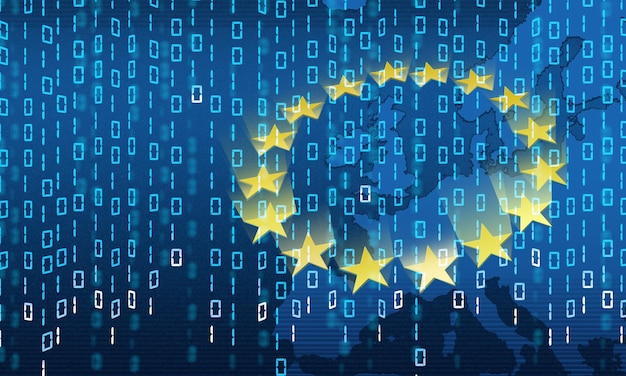6 Reasons Why Europe is a Strong Market for U.S. Tech Expansion
Europe is often viewed by U.S. companies as a region with challenging business conditions. However, a closer look reveals a dynamic, productive, and increasingly attractive environment for tech investment and growth. For U.S. IT firms exploring international expansion, Europe presents a wealth of opportunity rooted in stability, innovation, and cost-effectiveness.

1. Europe Offers Significant Growth Opportunity
Spending on digital transformation in governments and the private sector in Europe is expected to grow by 16.4% CAGR until 2030. The need for Europe’s tech maturity to catch up with the US is fostering this growth. By 2030, Europe will represent approximately 30% of the global IT market. Crucially, Europe is now also a major adopter of emerging technologies like AI. Total IT spending in Europe is expected to reach $1.5 trillion in 2030, growing nearly 9% year over year, with AI-related services a key driver. Forward-looking U.S. companies can tap into these opportunities to enhance their global innovation capabilities.
2. Efficient and High-Quality Productivity
European countries consistently demonstrate high productivity when measured in terms of output per hour worked. Nations such as Germany, Ireland, Belgium, and Denmark all surpass or rival U.S. productivity per hour, reflecting a culture of focused and effective work.
Moreover, Europe balances productivity with employee well-being, thanks to shorter working weeks and strong labor protections. Even in regions still developing, like parts of Eastern Europe, productivity and income levels are rapidly catching up, fueled by high engagement and strong work ethics.
For U.S. companies, this means you can expect performance levels on par with domestic teams, especially in roles tailored to your global standards. This is underscored by the success of tech giants like Apple and Microsoft, who earn over a quarter of their revenue from Europe.
3. Competitive Employment Costs Support Scalable Growth
Europe offers compelling advantages in terms of total employment expenses. In many cases, skilled positions such as software developers or sales executives cost 30–50% less than their U.S. counterparts, even after accounting for employer contributions to social benefits. This contradicts traditional views about Europe’s labor costs, but it is verifiable.
Countries like Ireland and the UK offer especially favorable cost structures, while even countries with high social benefit contributions like Germany remain significantly more affordable. This allows U.S. companies to scale operations without compromising on talent quality.
Additionally, the stronger social safety net in Europe often translates into better employee satisfaction, stability and retention, all critical factors for long-term business success.
4. Attractive and Competitive Corporate Tax Environment
Contrary to perceptions, many European countries offer highly competitive corporate tax rates. With an average corporate tax rate of 21.5% across Europe, lower than the 25.6% U.S. average, Europe is a tax-efficient base for global operations.
Notably, countries like Hungary (9%), Ireland (12.5%), and Bulgaria (10%) offer some of the lowest rates, making Europe an attractive destination for businesses seeking favorable tax conditions.
Europe also provides highly competitive tax incentives for business investment in research and development (R&D), with subsidy rates up to 5X versus what is granted in the United States.
For companies looking to optimize global tax exposure, Europe provides compelling options across both established and emerging economies.
5. A Global Leader in Innovation and Talent
Europe is a powerhouse of innovation. According to the Global Innovation Index, seven of the top ten most innovative countries are in Europe, with Switzerland and Sweden taking the top two spots. Europe also hosts 12 of the top 50 global science and technology clusters, more than in the U.S..
Europe’s strength lies in its combination of elite universities, robust and dependable public research funding, and a highly educated workforce. Cities like London, Berlin, Amsterdam, Paris and Tallinn are growing tech and AI hubs, making Europe a rich source of ideas, products, and talent.
6. A Stable, Rule-Based Economy with Global Influence
Europe’s regulatory framework is often cited as complex, but it also fosters a stable and predictable business environment. High-impact initiatives such as GDPR, the Digital Services Act, and the upcoming EU AI Act are setting global standards, creating opportunities for compliance-driven innovation and long-term investment.
Far from stifling growth, Europe’s regulatory clarity supports trust, transparency, and fair competition. Nobel-winning economists have shown that such inclusive institutions are critical to long-term prosperity, and Europe is a perfect example of this.
Recent efforts to streamline EU regulations further underscore a commitment to making the region more business-friendly. This evolving environment allows early movers to gain competitive advantage and shape the future of global regulation.
Conclusion: Europe is a Strategic Launchpad for Global Growth

Europe combines high productivity, significant market growth, competitive costs, cutting-edge innovation, and a predictable regulatory framework. It offers U.S. tech firms a robust and scalable platform for international growth. While the region may be complex, it is also full of opportunity, and perhaps more ready than ever for bold U.S. investment and leadership.
Source: GOEUROPE CONSULTING, by Robert Gessner.